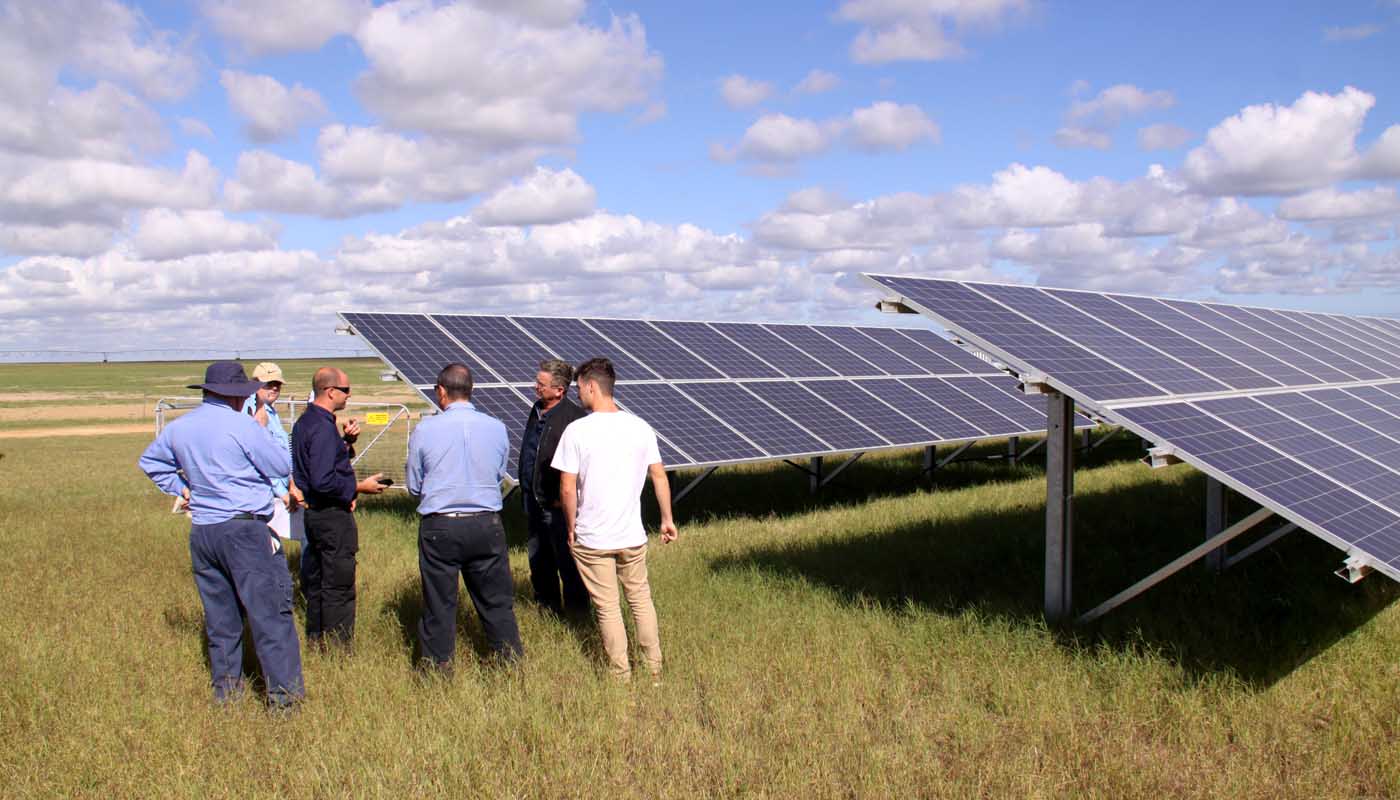- July 5, 2017
- No Comment
Farmers Feeling the Heat, and Making the Most Of It

While the increasing heat and year-round sunshine in farming communities can cause its fair share of issues, some farmers are making the most of Australia’s unique conditions. Facing rising power costs and an often-unreliable supply, many are turning to our infinite sunshine to ease their power woes.
A national audit by SunWiz last year found that 7,000 solar batteries were installed in Aussie homes, and that figure is expected to triple in the coming year. Australia has the highest per capita uptake of solar power in the world, and we show no signs of slowing down in our appetite for renewable energy. Upon the introduction of Tesla’s Powerwall, interest spiked significantly. The ability to capture and store your own power, and even feed excess power back to the grid is an irresistible opportunity for those fed up with their power bills, or simply looking for a more environmentally-friendly household or workplace. For businesses in rural areas, however, this kind of technology is providing a much-needed break from the burden of power costs and intermittent supply.
According to the National Farmers Federation president Fiona Simson:
“We see examples of where farm businesses are facing the prospects of crippling overnight electricity bill increases of 200 and 300 per cent due to unjustified tariff increases. Electricity cost increases of this magnum are impossible to absorb for any business – let alone small businesses like farmers.”
Blackouts can affect farmers in a variety of ways, from cooling systems shutdowns to processing equipment being rendered inoperable. Ms Simson highlights tales of produce spoiling, and farmers having to dust off decades-old generators just to keep their operations afloat. Needless to say, solutions such as diesel generators are short-term in nature and are unsustainably expensive. While the NFF hopes to see a long-term solution in the form of reliable, affordable renewable energy, farmers are facing immediate threats to their livelihoods. For this reason, some have taken it upon themselves to set up solar power systems on their own properties.
Jenna and Scott McGregor farm at Tenindewa, north of Perth and spoke to ABC’s Sarah Tiller about their experience with power outages.
“We had a shocking summer. Our power went out copious amounts of times,” she said. “On the majority of the hot days that came through, our power went out. Not just for an hour or two, sometimes 50 hours, sometimes 24.”
Jenny reports losing water, because their pumps cannot function, as well as losing phone signal when their booster goes unpowered. Not only are the hot conditions uncomfortable to live in, the unreliable service puts their farming operation in jeopardy. To say that Jenny and her family are frustrated is an understatement.
“We are paying the same amount that people in towns and cities are paying and we’re not receiving the same service,” she said.
Recognising the impermanence of fossil fuels, and the costs to both the budget and the planet, international farming firm Sundrop Farms has made it their mission to rely on renewable energy and resources. Their Port Augusta farm in Western Australia operates on solar power, and has its own on-site desalination plant to boot.
Their motto? “An everlasting supply of sunshine and sea water to grow food in arid lands.”
Their website best explains their approach:
“If you are a traditional farmer, you’ll need water and energy to grow your produce. And you’ll need lots of it. The challenge is that they are finite resources that are becoming ever scarcer. Our solution? Not to use them!”
Beyond desalinating their own sea water and avoiding the need to draw groundwater in huge quantities, Sundrop doesn’t use soil either. Instead, they operate a series of advanced greenhouses, powered by their state-of-the art 115m solar tower and its 23,000 mirrors. The farm produces tomatoes, and supplies Coles supermarkets with 15,000 tonnes of produce per year.

It isn’t just the multinationals with million (and billion) dollar budgets who are taking energy generation into their own hands, however. Some Aussie farmers are handing over cold hard cash to come up with solutions to their unreliable power, and hoping that the initial outlay will pay off in the long run.
The Dobra family are one such example. Farming loose leaf lettuce varieties, the family used to spend up to $14,000 per month on electricity. Peter Dobra explained to ABC Rural that the Gingin farm, north of Perth, is now being powered by solar energy since an investment by the family in solar panels and equipment. After talks with an independent energy consultant, the family decided to install the panels, for which the repayments are $2,500 per month. As a result, their electricity bills have halved, meaning an average of $4,500 per month saving.
At present, there are around 20 manufacturers producing power storage batteries for solar in Australia, and prices can range from as little as $1,200 up to $10,000 or more. These prices have dropped significantly since 2016, due to their rising popularity and advances in technology which are seeing manufacturing costs reduce. As prices continue to fall, more farms and other rural businesses who struggle with reliability are taking up the technology, just as the Dobra family have done. The ability to pay off the equipment over time has made it easier for many to implement. As debate still wages across the country around the best solutions to providing reliable energy for consumers and businesses, investment in solar technology by small businesses, farms, and the general consumer is a trend that is sure to continue.






